Description
Yin and Yang Qigong acquires new practices to activate, energize, and empower six pairs of Yin and Yang organs, culminating in a practice involving all 12 meridians, in order to enhance the circulation of your energy for optimally healthy, holistic, and integrated wellbeing.
Who is Robert Peng?
Born and raised in the province of Hunan in China, Robert Peng is now known around the world as a master of Qigong and a gifted healer.
At the tender age of eight, he began his rigorous apprenticeship with the legendary monk Xiao Yao, a fully enlightened master renowned for his extraordinary therapeutic powers and martial arts prowess. At the age of 15, Robert underwent a radical spiritual transformation and awakened amazing healing powers by enduring a 100-day water fast in a small dark room at a secluded monastery in the remote mountains of Hunan province.
After secretly honing his skills during his time at university in Changsha, he made his way into the public classroom at the age of 29. In just five years, he had educated more than 150,000 students in China, Australia, and the United States.
Robert has taken the ancient Chinese healing art of Qigong and combined it with his Western life and teaching experience to create a method that allows people of all backgrounds to learn and benefit from the true spirit of this practice, regardless of their cultural background.
Yin and Yang Qigong with Robert Peng
Robert will guide you through the fundamental skills and competencies required to open all your meridians in order to access unlimited energy, focus, and potential over the course of nine weeks.
Module 1: Open the Lung & Large Intestine Meridians — Embracing Both Sadness & Kindness (August 2)
How do your internal organs work with one another, energetically?
Robert will explain the 5 Elements Theory and the pairs of Yin and Yang organs as you explore the first pair of organs, the lungs and the large intestine.
In energy medicine, both Qi and breathing are controlled by the lungs. On an emotional level, they absorb new concepts and ideas, absorbing what we can use and discarding what we no longer require, such as sadness, grief, and outdated ideas. They extract clean energy from the air you breathe and combine it with the food energy you consume.
The lungs produce “Upright Energy,” which nourishes the body and generates and distributes Defensive Qi (Wei Qi), which creates a barrier similar to the immune system and protects the body from pathogens that can cause illness and disease.
In addition, the lungs house the Po, which supports your fundamental senses, including feeling, sensing, hearing, and seeing.
The large intestine receives food and liquid from the small intestine and then eliminates it from the body. Both the large intestine and lung meridians are associated with apathy, boredom, grief, inability to let go, lack of inspiration, melancholy, sadness, and shyness.
Robert will instruct you on how to strengthen the lung and large intestine meridians, as well as how to balance your body and mind by accepting your sadness and kindness.
In this module, you’ll discover:
- An overview of the lungs and large intestine meridians
- A comparison of the medicine and energy medicine perspectives around the lungs and large intestines
- Si chanting to activate, vibrate, and empower the lung and large intestine meridians
- A SongKongTong chanting/pressing technique to open your lungs and large intestine meridians to divine energy and reorganize your energy pattern
Module 2: Open the Stomach & Spleen Meridians — Embracing Both Doubt & Trust (August 9)
The spleen and stomach are the second set of Yin and Yang organs that Robert will teach about and lead exercises for.
As Robert will explain, the spleen regulates and controls the strength and function of your muscles, flesh, and limbs; it also controls digestion; it keeps blood in the vessels; it transports and distributes energy throughout the body; and it governs and controls the digestive process.
It also supports the body internally, keeping organs in their proper places. The Yi, which is responsible for cognition, learning, and retention, is located in the spleen as well.
In the meantime, your stomach regulates the flow of Qi downward, receives nourishment, and undergoes cellular transformations that promote the growth of various organs and tissues. It filters the food that has been eaten, sending the pure components “upwards” to the spleen and the unclean components “downwards” to the small intestine.
The emotional symptoms of confusion, needing sympathy, feeling ungrounded, insecurity/neediness, obsessive thoughts, restless sleep, egocentric behavior, worry, poor concentration, poor memory, and a general lack of focus are linked to the spleen and stomach.
Using a healthy dose of both doubt and trust, Robert will show you how to strengthen the spleen and stomach meridians and achieve overall physical and mental harmony.
In this module, you’ll explore:
- A comparison of the Western medicine and energy medicine perspectives around the spleen and stomach
- The spleen and stomach meridians
- A Hoo chanting exercise to activate, vibrate, and empower your spleen and stomach
- A SongKongTong chanting/pressing technique to open your spleen and stomach to divine energy
Module 3: Open the Heart & Small Intestine Meridians — Embracing Both Hatred & Love (August 23)
Your third set of Yin and Yang organs, the heart and small intestine, will be the focus of your practice as Robert leads the way.
According to the principles of energy medicine, the cardiovascular system (which includes perspiration, blood vessels, and circulation) is under the control of the heart. It also helps and regulates our thoughts. The effects can be seen in how the skin looks. The Shen, the human equivalent of the soul, resides in the heart as well.
The small intestine regulates what we eat and drink, sorting “clean” from “impure” substances. It directs digested food to the large intestine so that nutrients can be reabsorbed, and it directs waste products to the bladder so that they can be excreted.
Emotional symptoms such as agitation, anxiety, continuous laughter, criticality, cynical behavior, excessive and/or vivid dreaming, forgetfulness, lack of joy or humor, lack of self-love, mania, mental confusion, poor self-esteem, and restlessness have been linked to the heart and the small intestine.
Balance your body and mind as you learn to strengthen the meridian that runs through your small intestine by strengthening the meridian that runs through your heart.
In this module, you’ll explore:
- An overview of the heart and small intestine meridians
- A comparison of the Western medicine and energy medicine perspectives of the heart and small intestine
- A Ha chanting exercise to activate, vibrate, and empower your heart and small intestine
- A SongKongTong chanting/pressing technique to open your heart and small intestine to divine energy
Module 4: Open the Kidney & Bladder Meridians — Embracing Both Fear & Tranquility (August 30)
A fourth set of Yin and Yang organs, the kidney and bladder, will be revealed to you.
The kidney meridian is responsible for reproduction, bone marrow production, and the regulation of water flow in energy medicine. Controlling and activating sexual energy, determining your vitality and lifespan, influencing the health and strength of your bones, and influencing your overall growth and development are all influenced by your endocrine system.
The Zhi, located in the bladder, is in charge of willpower and bravery; it provides the focus and determination necessary to realize one’s ambitions. The bladder’s dual function of storing and excreting urine is essential for healthy body-wide fluid balance.
A person’s level of defensiveness, depression, fear, overwhelm, lack of willpower, moaning and groaning, complaining, panic attacks, paranoia, and timidity are all linked to the kidney and bladder.
You’ll learn to balance your body and mind as you learn to embrace both fear and tranquility by strengthening your kidney and bladder meridians.
In this module, Robert will share:
- An overview of the kidney and bladder meridians
- A comparison of the Western medicine and energy medicine perspectives of the kidney and bladder
- A Chuay chanting exercise to activate, vibrate, and empower your kidney and bladder
- A SongKongTong chanting/pressing technique to open your kidney and bladder to divine energy
Module 5: The Pericardium & Triple Energizer (September 6)
The fifth set of Yin and Yang organs that Robert will instruct on and oversee is the pericardium and the Triple Energizer.
According to conventional Western medical theory, the pericardium is a sac-like membrane that surrounds the heart. The pericardium serves as a shield to shield the heart from energetic assaults in energy medicine. It has many of the same symptoms and uses as the cardiovascular system as a whole, and is therefore very closely related to it.
Instead of being an actual organ, the Triple Energizer—also known as the San Jiao or Triple Burner—is a term for the interplay between several different ones.
Defensiveness and emotional fragmentation are linked to both pericardium and triple energizer.
If you want to learn how to maintain a healthy mental and physical equilibrium, Robert will show you how to strengthen your pericardium and Triple Energizer meridian systems by prioritizing safety and unity.
In this module, you’ll discover:
- An overview of two special organs within energy medicine, pericardium and Triple Energizer
- A Xi chanting exercise to activate, vibrate, and empower your pericardium and Triple Energizer
- A SongKongTong chanting/pressing technique to open your pericardium and Triple Energizer to divine energy
Module 6: Open the Liver & Gallbladder Meridians — Channeling & Embracing Both Your Anger & Understanding (September 13)
The liver and gallbladder make up the sixth set of Yin and Yang organs you’ll examine in this session.
In energy medicine, as Robert will explain, the liver not only stores blood, but also controls one’s emotions and plays a role in controlling one’s period. It influences your ability to plan ahead and organize by maintaining a steady flow of Qi. It regulates musculature, including the pliability and agility of tendons and ligaments, and it affects the digestive processes of the stomach and spleen. The “Hun,” a concept analogous to soul or spirit, resides in the liver.
Both the depth and duration of your slumber are affected by your gallbladder. It regulates one’s sense of judgment and one’s capacity to make choices.
Your liver and gallbladder are both connected with emotional symptoms of aggressive behavior, anger, bitterness, depression, emotional repression, frustration, impatience, inability to plan or organize, indecision, irritability, jealousy, moodiness, negative outlook, nervous tension, over-fastidious planning, resentment, rigid and inflexible attitudes, shouting, and timidity.
You’ll learn to balance your body and mind by welcoming both anger and understanding as you study techniques that strengthen your liver and gallbladder meridians.
In this module, you’ll explore:
- An overview of the liver and gallbladder meridians
- A comparison of the Western medicine and energy medicine perspectives of the liver and gallbladder
- A Shoo chanting exercise to activate, vibrate, and empower your liver and gallbladder
- A SongKongTong chanting/pressing technique to open your liver and gallbladder to divine energy
Module 7: Open All 12 Meridians — Making a Full Circulation of Your Energy Flow & the Rhythm of Your Practice (October 4)
You have trained each of the 12 meridian points once a week. Now, Robert will guide you through a full meridians practice, bringing your energy flow full circle.
If you can increase your Qi flow, you’ll feel better physically and mentally, and you’ll be able to get more done. Developing your Qi and increasing your life force will make you feel more energized and will strengthen your bonds to yourself, others, the natural world, and the cosmos.
The ZiWuLiuZhu theory, which explains how the energy flow within you correlates with the natural world, is something that Robert will discuss. The beginning and end of the day are just two examples of such occurrences, but they can also include the passage of the sun and moon, the change of seasons, and other astronomical phenomena.
In this module, you’ll discover:
- The foundations of the ZiWuLiuZhu theory, your inner rhythm’s energy flow combined with natural phenomena
- How each meridian is linked together through Yin and Yang
- Which hours of the day and which seasons of the year are the peak energetic times for specific organs and meridians
- A guided practice featuring all 12 meridians, so you can experience a full circulation of your energy flow
Module 8: Combining Your Meridian Pairs With Deepening Exercises (October 11)
So far, Robert has instructed you to work on six pairs of meridians, following the order in which Qi flows. You’ve been using a chanting exercise to nourish and empower yourself after practicing each pair.
Each of the twelve organs is classified as Zang (yin) or Fu (yang) in traditional Chinese medicine, and this week Robert will show you how to add a new dimension by understanding this distinction (yang).
The Zang-Fu is a network of organs responsible for creating and balancing your body’s vital energy, or Qi. Energy medicine reinterprets these organs not as discrete structures but as interdependent processes that shed light on the origins of Qi in the body.
Robert will show you how to expand your practice by combining meridian pairs in novel ways in this unique module.
Fever reduction, cold intolerance, neck stiffness, and a weak, superficial pulse can all be treated with Tai Yang Meridians (the small intestine and bladder).
Alternating chills and fever, fullness in the costal and hypochondriac regions, mental restlessness, bitter taste, dry throat, blurred vision, and a taut pulse are treated with Shao Yang (Triple Warmer and gallbladder).
Yang Ming (large intestine and stomach) to bring relief for a high fever, sweating, thirst, flushed face, restlessness, yellow/dry tongue, and a superficial and forceful pulse
Abdominal fullness, vomiting, poor appetite, diarrhea, abdominal pain (better with warmth and/or pressure), lack of thirst, pale tongue with white coating, and slow pulse are all conditions treated with Tai Yin (lungs and spleen).
Shao Yin (heart and kidney) to address aversion to cold, listlessness, desire to sleep, cold limbs, diarrhea, clear urine, pale tongue with white coat, thread pulse, mental restlessness, insomnia, dry mouth/throat, deep yellow urine, red tongue, and a rapid, thready pulse
Pain or heat in the chest, a lack of appetite, chilly extremities, diarrhoea, and vomiting are all symptoms that can be helped by stimulating the Jue Yin (pericardium and liver) organ system.
Module 9: Central Meridian Empowerment — Harmonizing All Meridians to Unify Heaven, Earth & Human Qi as One (October 18)
Your final lesson in this course will teach you about the Central Meridian, an energy pathway running from your head to your perineum.
It unites the energy of the three dantians and the twelve meridian channels. From the crown of your head, it continues upward to link with Heaven Qi, and from your perineum, it descends to the core of the Earth, making you an integral part of the natural world and a master of your own universal energy.
This final week, Robert will introduce a new, unique practice designed to harmonize all meridians and unite Heaven, Earth, and Human Qi into a unified whole: Central Meridian Breathing Empowerment.
In this closing module, you’ll explore:
A review An overview of the theory of 4 Golden Wheels
Insight into your Central Meridian, including its special function of harmonizing and connecting
A Central Meridian breathing empowerment practice
How to organize your Qigong practices wisely so Qigong is a natural, pleasant tool for your daily life
Bonuses
- 100-Day Fasts, Darkness Meditation & Superhuman Abilities: Audio Dialogue With Robert Peng and Aditya Jaykumar
- Nourishing Your Qi: Audio Dialogue With Robert Peng and Tami Samon
- Awakening Awareness Audio Teaching From Robert Peng : The original price of Live Long Qigong on its own was $297.00, but it’s INCLUDED in your registration for the advanced course!
Refund is acceptable:
- Firstly, item is not as explained
- Secondly, Yin and Yang Qigong do not work the way it should.
- Thirdly, and most importantly, support extension can not be used.
Thank You For Choosing Us! We appreciate it.
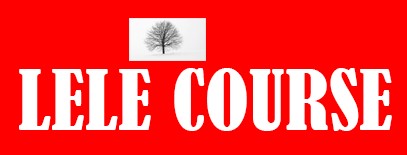
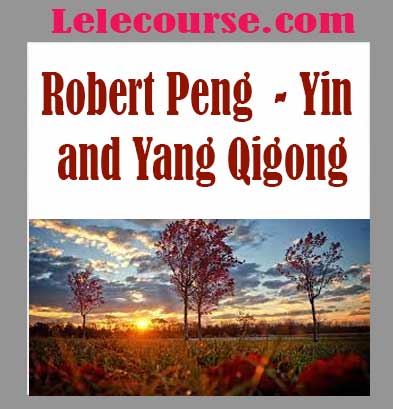
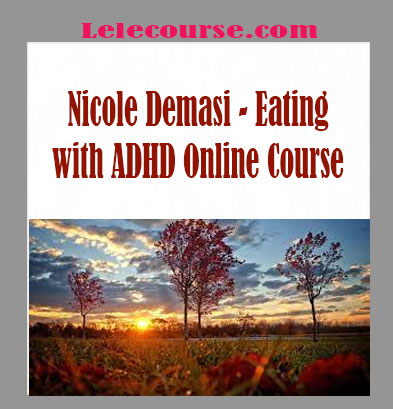
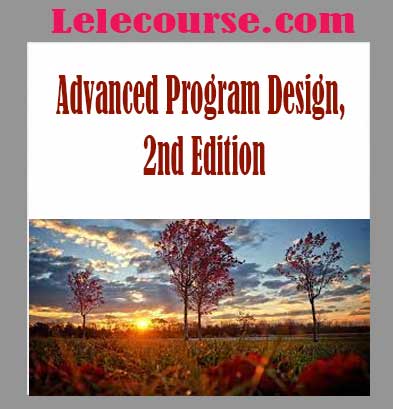


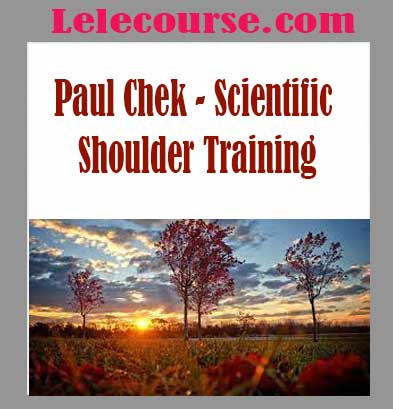
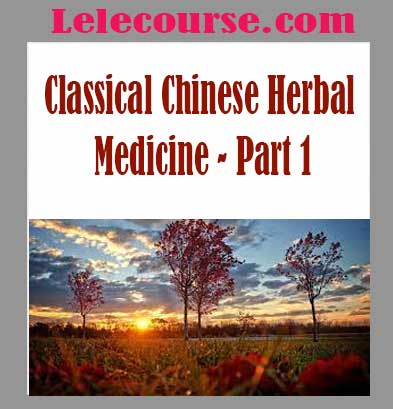

Reviews
There are no reviews yet.